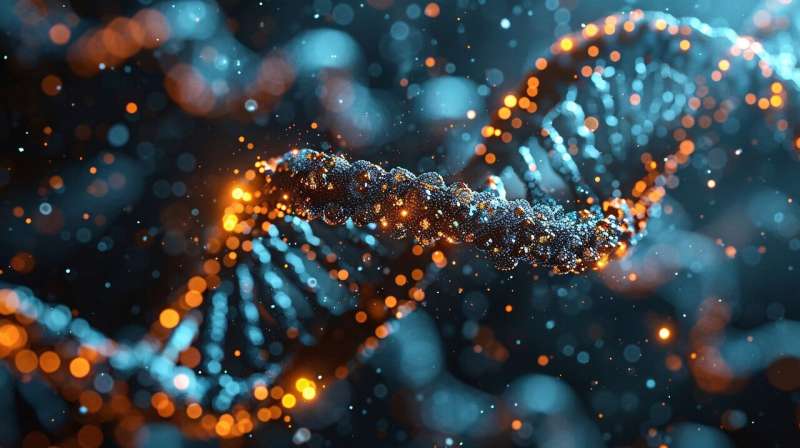This article has been reviewed according to Science X's editorial process and policies. Editors have highlighted the following attributes while ensuring the content's credibility:
fact-checked
peer-reviewed publication
trusted source
proofread
New haplotype reference panel for UK Biobank identifies several new rare-variant associations for tested traits

In research reported in Nature Genetics, Professor Sir Mark Caulfield with Dr. Sinan Shi and Professor Simon Myers, both from Statistics at the University of Oxford, used records from over 78,000 individuals in the Genomics England (GEL) dataset with whole genome sequences to build a new reference panel with 342 million autosomal variants, and which contained a diverse ethnic representation.
A vital step in genome-wide association studies (GWAS) is the use of a reference panel for genotype imputation, against which new genetic information can be compared.
The new reference panel was found to be of higher accuracy when compared to existing panels using the GEL dataset, and its use has already led to the identification of new and rare-variant associations for tested traits.
Sir Mark, Vice Principal for Health for Queen Mary's Faculty of Medicine and Dentistry, said, "This use of whole genomes has improved the information that can be extracted from the UK Biobank genotyping for analysis of common diseases. It will eventually be superseded by UK Biobank Whole Genome sequencing as that data becomes available."
More information: Sinan Shi et al, A Genomics England haplotype reference panel and imputation of UK Biobank, Nature Genetics (2024). DOI: 10.1038/s41588-024-01868-7

















